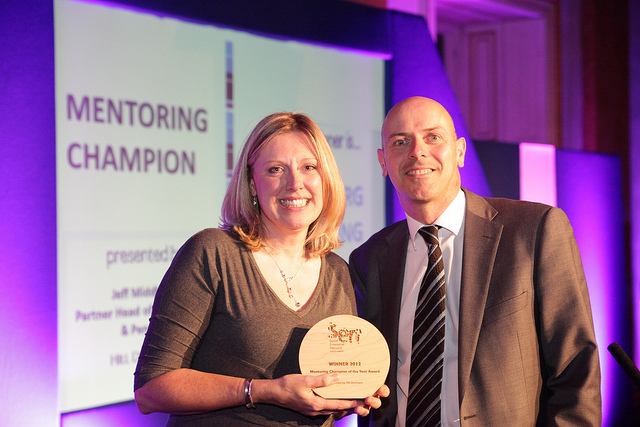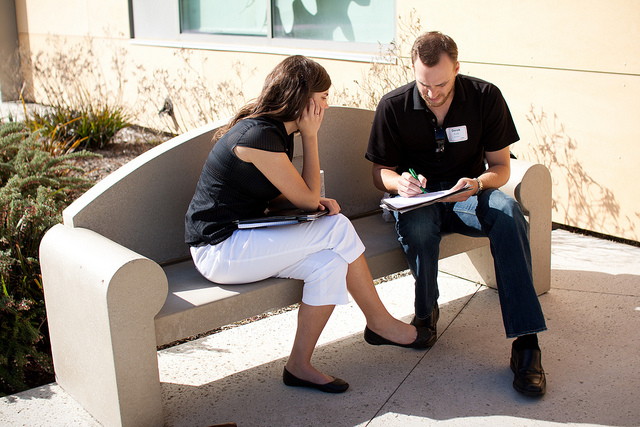The Benefits of Mentoring

I was approached to be a mentor sometime last fall. At first, I was not exactly sold on the idea, or the benefits of mentoring. As someone in need of mentoring herself, what could I possibly teach a potential protégée? After some thought, however, I decided to give it a shot. I figured I might just learn something in the process, and at the very least it would serve as a nice addition to my resume.
I became a mentor through a program called Year UP. I attended the first meeting on a cold day in November, not knowing what to expect, but excited at the prospect of embarking on a new adventure. After meeting my fellow mentors, filling out some forms and chowing down on some of the goodies provided, I was finally introduced to my mentee.
Upon meeting my mentee, I could not help but notice her energy. She was talkative and bubbly, and seemed genuinely excited to meet me. I knew at that very moment that this experience would definitely be worth it. And I was right. I am extremely glad that I chose to take on this challenge. Here are the three most important things I have learned about the benefits of mentoring:
1. Do not underestimate your ability to teach.
All mentees need one thing: guidance. Despite my initial reservations, I knew that ultimately I had the ability to provide such guidance. You do not have to be the smartest, nor most successful person in the world in order to provide direction. The fact of the matter is that you have made mistakes, and thus have acquired some level of experience and insight through time. This is the knowledge that you must bestow on your protégée.
Your duty as a mentor is to help them avoid some of the obstacles that you faced, so that they do not make the same mistakes. I have found that mentoring comes naturally to me.
When my mentee asks me questions, whether about career related matters or about her favorite topic, boys, I immediately have an answer for her. That is because as someone almost 10 years her senior, I have been there before and I’m happy to steer her in the right direction.
2. The Mentor gets as much, if not more, from the relationship, as the mentee does.
Physician Frank Oppenheimer said that the best way to learn is to teach. In just a short time, mentoring has taught me a variety of things. One of my biggest goals while interacting with my mentee is to be a good role model for her.
Having this constantly on my mind stimulates me to make smarter decisions and behave in a more professional manner. Furthermore, mentoring has allowed me to refine and improve my communication, leadership and coaching skills. Talking to my mentee about her career goals and expectations, forces me to analyze and question my own goals and expectations and address them accordingly.
Thus overall being a mentor has fostered my own personal and professional growth. Perhaps most interestingly, the realization that I am helping somebody else has served as a nice boost to my self-esteem and overall life satisfaction.
3. Mentoring is for life
During one of our first meetings, I asked my protégé: “So when does the mentoring program officially end?” She looked at me and laughed: “It doesn’t end”, as if to say “You’re stuck with me forever!” I could not help but laugh back.
A year later, the program has come and gone; yet my mentee and I still make the effort to meet about once a month. My protégé is unlike any other 19 year old I have ever met. She has somehow risen above the apathy that often consumes kids her age, girls in particular. She is driven and motivated, and more importantly she knows it. I have no reservations that she will get very far and I plan to be along with her every step of the way.
Upon mentoring you are not just guiding a young professional; you are in essence adding to your network. You are laying the foundation for a relationship that if nurtured correctly can greatly benefit both parties and award you both an ally for life.


